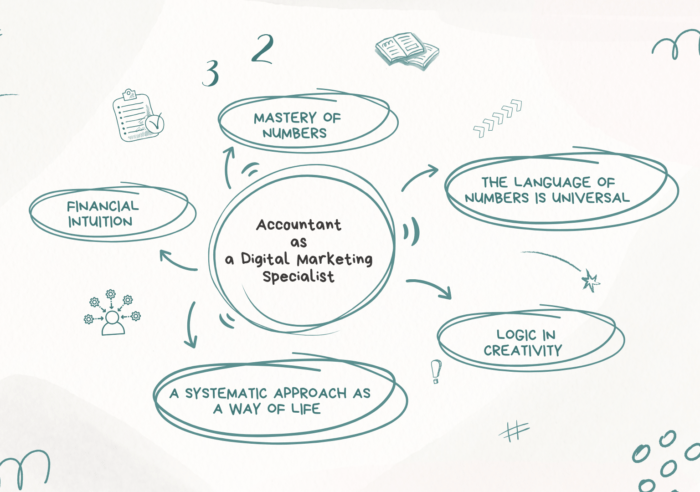“Trade Marketing”, “Merchandising”, “In-store Design” or “Retail Design”. Different companies have different job titles, which might be confusing. However, the essence of the job remains the same.
Since some people may be confused when asked what this function is about and its real value to the business, here we will try to give an idea of what this essential function means to a business in the long retail chain that leads from product development to sales.

The importance of the function
This role, whatever it might be called in diverse companies, has been in existence for more than 25 years. Initially conceived as a function which would organize tailored promotions for large retail customers, it became increasingly important in the 90’s. Media fragmentation (with the emergence of new segments, effectiveness of mass marketing techniques has been reduced and brand loyalty eroded), retail consolidation (also called ‘central buying’, an approach in chain stores whereby all purchasing is done through a central or main office) and the growth of category management led many large FMCG (Fast Moving Consumer Goods) companies to conclude that greater support was needed in managing the trade.
So, ‘Trade Marketing’, as it was originally called, developed into a specialist function, supporting marketing and sales and considered as a discipline of marketing. It is distinct from ‘Brand Marketing’ in the sense that it is focused on marketing to retailers and distribution channels, rather than to consumers.
Quite simply, trade marketers focus on how a company wants to market its products and services to the customer base through the retail outlets. This is a key component that enables access to end consumers, which is the target that a company’s brand marketers are trying to attract. Trade marketing strives to increase demand through the wholesaler, retailer or distributor. Activities therefore focus on how to influence shoppers through the retail marketing.
Given the complexity of the retail and distribution channels, a tailor-made marketing plan is crucial. Various forms of promotion on the retail end should include activities such as ensuring prominent display of the product, branded merchandise, and amount and placement of shelf space.
Although some of the responsibilities may sound similar, this function and all of its various job titles should not be confused with a ‘Store Manager’, the person ultimately responsible for the day-to-day operations in the store directly; or ‘Shopper Marketing’, which is not a function as such, but a method aimed at understanding how a company’s target consumers behave as shoppers.
The process and its challenges
We can refer to the below activity chain to better understand the value of this role in marketing and sales:

For most experienced marketers, it is easy to develop a strategy and its appropriate “toolbox” of elements to use in the marketing campaigns. The difficulty, however, lies in both implementing it and in keeping the entire organization aligned with it.
In addition, for strong trade strategy and execution, trade marketers constantly have to seek out new techniques and ideas to ‘retail-tain’ shoppers and sell a product to their customers. They must constantly be looking for newness, what stands out, and what will drive traffic to their products. A trade marketer must also always keep one question in mind: “what’s in for my retailers?”
For the last ten years, companies have injected more and more budget into the function. One reason is because today, an advertising campaign does not bring consumers/shoppers directly to the store to buy a product. 70% of shopping decisions are made at the retail outlet, or what marketing practitioners refer to as ‘point-of-purchase’. Furthermore, large companies and retailers are generally working with a very busy calendar, and it is often difficult to fit in all of the respective category launches and commercial innovations. That is not even taking into account the key consumption periods, like Valentine’s Day, Mother’s Day or Christmas, where often FMCGs are leveraging a common campaign to fit most of their portfolio brands, in order to ensure the best visibility.
Thinking outside of the box, but fitting into the box
If we were to try to understand a trade marketer today, we would say their motto must be “think outside of the box, but fit into the box”.
This main objective and challenge of this function is indeed how to convey the communication idea/concept from the Brand Marketing team to the store, but more importantly how to stand out in-store in a more and more crowded environment with numerous competitors.
At the same time, trade marketers need to know the customers/trade standards and channels extremely well, to work closely with sales teams, and to know the legal and safety requirements and constraints inside and out. The job also often requires working with diverse suppliers to provide realistic prototypes before going into final production. Excellent negotiation skills are sometimes required to stay within the budget and deliver quality materials.
Quality and brand equity are especially key in the Fashion, Cosmetics or Fragrances industries, as trade marketers often have to refer to the ‘Fashion House’ counterpart(s). Since they are very attached to the brand’s history and heritage, the Fashion House must also be aligned with all trade marketing activities.
Skills needed
A trade marketer must be agile, creative and responsive. He or she must be able to go the extra mile, focus externally on customer needs, and see how shoppers interact at the point of purchase. Here are some of the additional skills necessary for this function:
- proven project management skills
- proficient at establishing and maintaining relationships with cross-functional peers
- keen understanding of retailers, go-to-market strategies, and trade/channel dynamics
- remarkable ability to analyze trends and recommend necessary changes
Trade marketing as a profession can a bit all-consuming from time to time, since it is important to ‘please everyone’ (all of the partners and stakeholders they are working for and with: from the Fashion Houses and their Boards of Directors to the retail outlets to the consumers themselves and everyone in-between...). At the same time, it is by far one of the most exciting and complete roles in the big wheel of marketing.
A combination of strategic insight, design, collaboration, business strategy and operational discipline skills is vital for a trade marketer. He or she needs to direct the retail work, leading it from a great vision to perfect execution. This is what makes a trade marketer an indispensable element in a company.
Sources:
https://www.robertwalters.com.hk/career-advice/working-as-a-trade-manager.html
https://en.wikipedia.org/wiki/Trade_marketing
Image credit: Alex Gorka, via Shutterstock







An interesting look at the workings of trade marketing. Obviously a key function in todays fast moving marketplace.